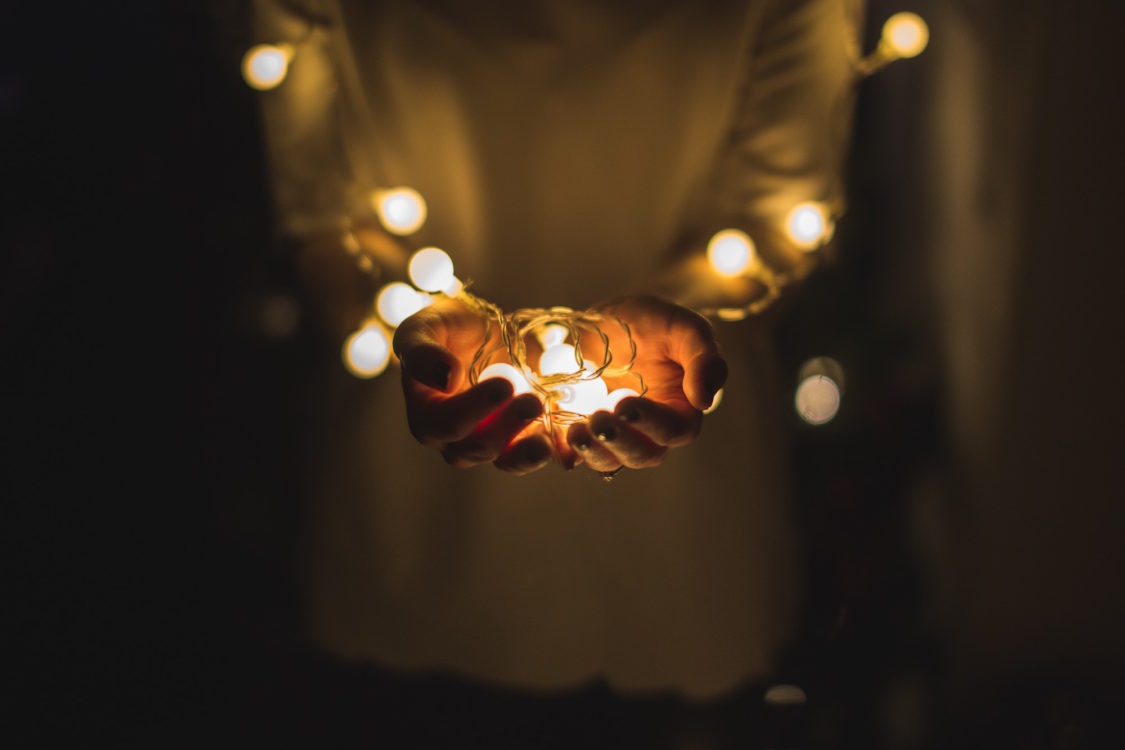
A Cancer Survivor’s Guide to the Holidays
The holidays can be beautiful. And stressful. No matter which way you try to spin it, gathering with friends and family, decorating the house, shopping for presents, trying to squeeze in all the traditions, and make time for everything can get exhausting if we let it. And when you add cancer to the list, even the happiest times lose their spark when you’re worried about the health care needs of yourself or someone close to you.
But it doesn’t have to be crazy this year. Here’s a few tips to staying present (see what I did there?) and enjoying the “most wonderful time of year”, even dealing with cancer and after-effects of illness:
Make yourself a priority.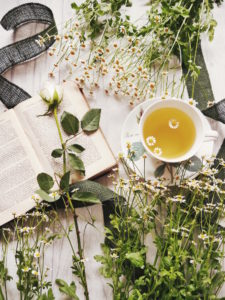
- Give your emotions some space and express your feelings, no matter how good or bad they might be.
- It’s easy to forget about your nutrition when you’re surrounded by cookies and treats! Eat your greens and make time physical activity to release tension and boost your oxygen levels.
- Allow yourself simple pleasures that will help lift your mood. Maybe that’s listening to your body when you need a nap, enjoying a book you’ve been wanting to get into, or taking a hot bath and diffusing some essential oils like lavender for relaxation.
- Find distractions that will keep your mind in the present: going to a movie, dinner, playing cards with friends, or other activities you enjoy.
- Meditate. Practice yoga and stretching to relax and release.
- Plan in advance how you want to spend your time, with whom, and for how long. Give yourself permission to step away from anything or anyone with negative or toxic energy.
- Practice saying “No”. You don’t have to participate in everything. People will understand if you can’t attend or need time to yourself. And if they don’t…well, practice boundaries and recognize that your well-being is more important.
Don’t let this season overwhelm you.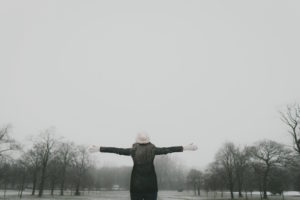
- Stress lowers the immune system and creates havoc in your body systems. Learn to be okay with letting others help you. Don’t pressure yourself with unrealistic expectations or try to do everything yourself.
- If you’re of drinking age, don’t overindulge in alcohol. Because alcohol is a depressant, it can “bring out” or amplify negative feelings.
- Don’t try to force yourself to be happy just because it’s the holiday season. Give yourself permission to be real.
- Buying things will not make up for any negative feelings you are having. Stick to a budge for the holidays. Decide how much money you can afford to spend on gifts and other items. And don’t exhaust yourself trying to cram shopping in. “Hustle and bustle” can really take a toll on your health!
- Don’t try to do everything. Make a list, and be realistic with your time and energy.
- Don’t abandon healthy habits! Get plenty of sleep. Stay active when you’re up for it. Eat well.
Holidays tend to heighten grief.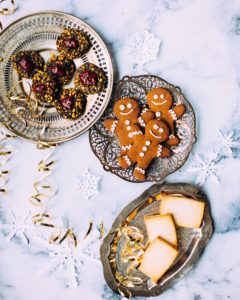
It’s true — we seem to feel a lot more during the holidays. Extreme emotions of joy and sadness can surface. And as a cancer survivor, I have been in that place where thoughts of “survivor’s guilt” and disconnection reveal themselves. Allow yourself to feel pain and whatever other emotions come along, too.
Grief is an important part of the healing process, but it doesn’t mean you have to stay in that headspace. Try following some of the tips above, and remember it’s okay to distract yourself sometimes. Be fully there with your family and loved ones, practice self-care, and embrace the beauty of the season!
About the Author
 Sabrina Gauer is our Communications Coordinator and Wellness Coach here at 13thirty Cancer Connect! Follow her Instagram for more tips and encouragement for whole health and wellness living!
Sabrina Gauer is our Communications Coordinator and Wellness Coach here at 13thirty Cancer Connect! Follow her Instagram for more tips and encouragement for whole health and wellness living!
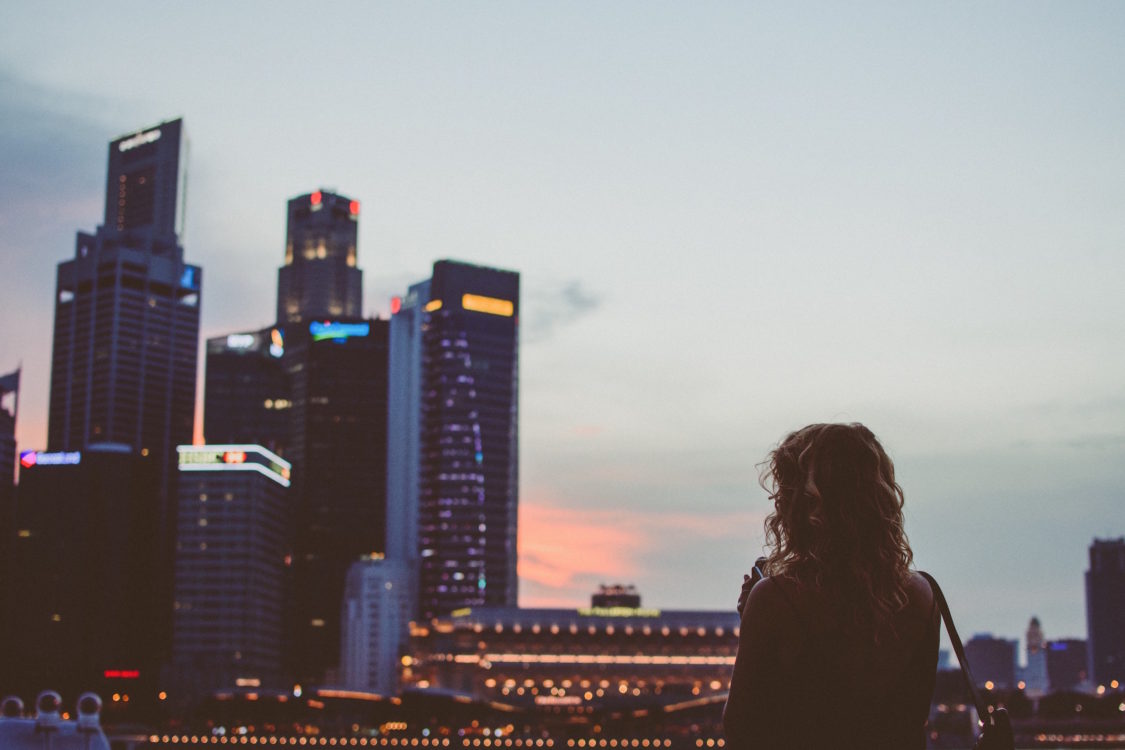
The Lessons of Cancer
Cat Gawronski teaches us the lessons she learned on her personal journey as an AYA living with cancer.
I was diagnosed with leukemia when I was 22, right in the middle of graduate school.
Having cancer was not personally the terrible experience that I believe most people picture when they think about being diagnosed with cancer. I really looked at having leukemia as a learning experience, especially because I am going into the medical profession. Even when diagnosed, I was honestly relieved that there was finally a reason why I had been feeling sick for so long.
Having a diagnosis was like having a goal for me — knowing that leukemia was something that I could beat.
There were certainly some bumps along the road, like having a reaction to chemo, getting hospitalized right before finals week, and missing exams. And, not being able to graduate with my friends this past year was probably the most disappointing moment through my treatment. However, I would say with certainty that the positive experiences outweigh the negatives.
My relationships with my friends are just as strong, if not stronger now than they were before I had cancer, and I even made some new friends in the process. I was able to convince my family that I needed a dog. I learned a lot about love and sacrifice from my family. And I found that I am really passionate about helping other young adults with cancer.
I really do believe that everything happens for a reason — I had cancer so that I could help somebody else.
-Cat Gawronski
I recently finished chemo, and I am not sure what I was expecting because when I think about what cancer looked like in my mind before all of this, I don’t think “post-cancer” was anything I ever envisioned. It certainly isn’t ever portrayed on TV or in the movies. The only thing I can really relate having leukemia to is to running a half marathon. When you start the race, you are thinking about the end goal, of finishing, but aren’t thinking about after. When you start the race, you think about making it to small milestones, like the first 3 miles (or the end of your first cycle of chemo). Next is the half way point which is a boost (for me this was getting to go back to school). Your legs are tired, but you don’t notice because you are so focused on making it to the finish line. Then, you only have a mile or two left when you are really fatigued — but you don’t really notice because you know you’re almost at the end (knowing that you only have a few procedures left).
Finally, you cross the finish line and you stop running. And it hits you: your toes all have blisters, your calves are burning, your mouth is dry, and you are exhausted. You have met your goal, so you don’t have anything to focus on and you finally feel the weight of the 13.1 miles you just ran.
This is what it was like to finish chemo. I got to the end, which was such a great feeling, but I finally realized how tired I was.
It finally hit me what I had just been through over the past 29 months.
I don’t know if I thought my life was just going to magically go back to how it had been before cancer…but I honestly feel kind of weird. Being post-treatment now, I feel like I need to re-learn what “normal” is again. This has been a lot more difficult than it was to adjust to having cancer.
However, I know if I look at this through the lens of my cancer — an experience to learn and grow from — I will be able to take something from it and help others try to navigate “normal”.
If I’ve learned anything so far, it’s that cancer might leave you physically, but it never really goes away. Every day I have a choice to let that impact be positive or negative.
Finding the positives aren’t always easy. But, because of all of this, I definitely choose to try to see the good in every situation, see the beauty in the world around me, and see how I can be a better person and use what I’ve learned to positively impact others.
About the Author
 Cat Gawronski is one of our 13thirty participants! She was diagnosed with cancer in 2015 and has recently finished treatment. She is in her last year of pharmacy school at University at Buffalo.
Cat Gawronski is one of our 13thirty participants! She was diagnosed with cancer in 2015 and has recently finished treatment. She is in her last year of pharmacy school at University at Buffalo.
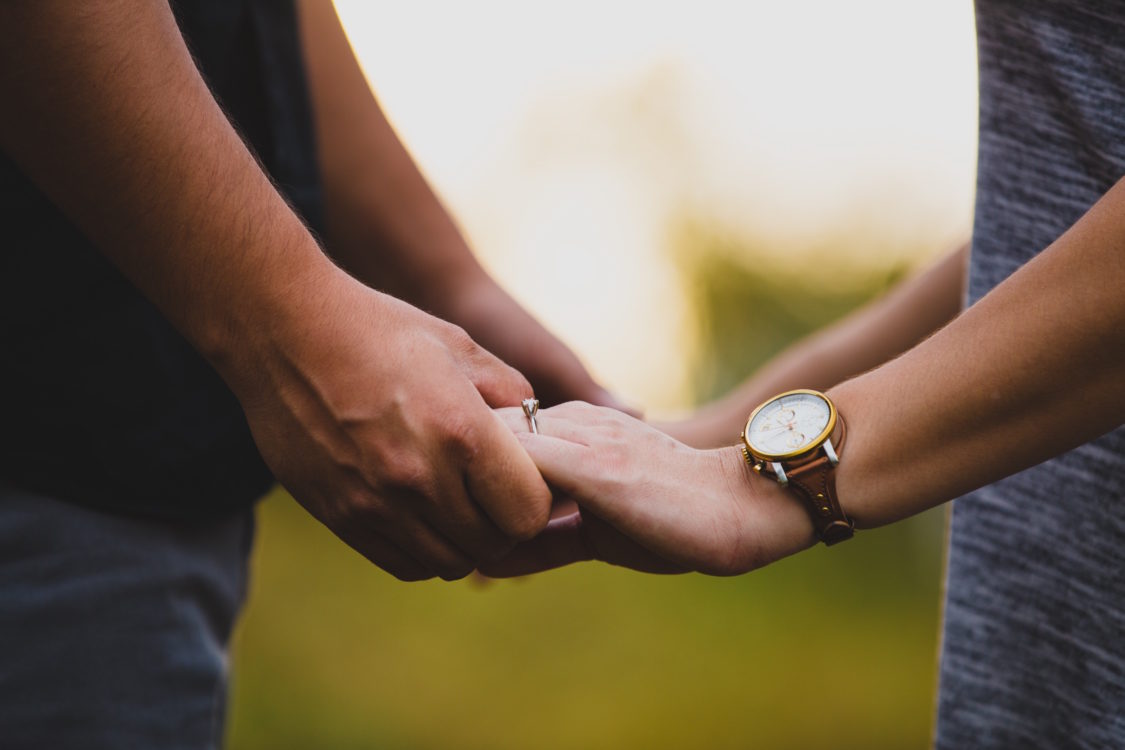
Opening My Heart After Cancer
Relationships After Cancer
I met my husband just about two years after I had finished cancer treatments.
I was still raw. I was terrified every day that I was relapsing. I had no idea how to have a new normal in my life, let alone know how to make a relationship a part of it.
Cancer was something that would always be a part of who I am and whoever I met following cancer would have no idea, which meant that I was going to have to be the one to not only tell them, but to help them understand my “baggage.”
Who doesn’t have baggage coming into a relationship? This is true; however, my baggage would affect most areas of my life including love, self-confidence, and intimacy.
After I met my now-husband, I was scared. I was scared to talk to him; I mean really talk to him about myself. I was scared that the GVH (graft vs. host) scars would be visible to him and that I would seem ugly. The story, while comedic now, goes that he asked me to be his girlfriend for the first time and I said no.
I really, truly liked him and loved spending time with him; however, my fears were too great. I knew that I needed to start being honest about my cancer experience. After multiple serious conversations about what I had been through, what I had seen friends go through, and what I was still dealing with, my husband asked me, again, to be his girlfriend — and this time, I said yes!
I’d like to say that once I was in a relationship, all my doubts and fears disappeared and my self-confidence was completely restored. But this was not the case.
Sicknesses and ailments came that now not only terrified me, but terrified the other person that I brought into the equation. I still struggled with being able to love myself again. This made it that much harder for me to allow someone else to love me. I had been so hardened by the friends I lost during cancer that I didn’t (and wouldn’t) allow myself to believe that anyone else would stay with me after cancer.
Having relationships after cancer doesn’t just add another person to your equation, it’s adds a whole new family and another set of friends. I didn’t do any public service announcements to tell everyone about my cancer but it was something that, after time, I chose not to hide. I was open with my husband’s family and his friends. I chose to let them see the strength I had rather than the fears that seemed to overwhelm me at times. The only thing harder than telling my future husband that I could not give him a family was having to tell his parents that I was not someone who could give them grandchildren in a traditional sense. But they continued to love me just the same.
Beating cancer was one the hardest things I’ve ever had to do, but surviving my cancer has been the bigger challenge.
I push to survive every day now and the best part is that I have someone alongside me to do it with. Everyone may not get their “fairytale ending”, but I am so happy that I got mine. My husband is the greatest man; he is so strong and confident in all the areas I am not. He is reassuring even when he is scared. And, when I had to share with him that cancer would also affect having a future family, he took everything in stride and supported me. I have been through the ringer — but so has he.
Supporting me in the aftermath of cancer is not easy; learning that we would not have our own biological children is a loss that we still grieve, but I have found someone who may not have been there for that chapter of my life, but who certainly understands all of those pieces of me.
Bottom line…relationships are hard. They’re intimidating and they require work, even without adding cancer to the equation! When you find that right person, however, they will accept you for who you are, including your cancer. And they won’t mind the extra “work,” finances, and fears that come with someone who is a cancer survivor.
About the Author
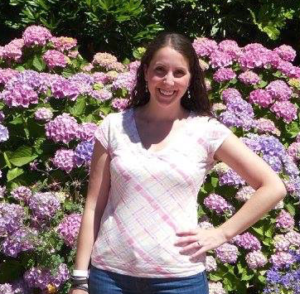 Paige Strassner is one of our 13thirty participants! She graduated from Roberts Wesleyan College in 2013 with a B.S. in Nursing. She currently works at University of Rochester Medical Center in the Medical Intensive Care unit. She enjoys spending time with family and friends, singing, and exercising.
Paige Strassner is one of our 13thirty participants! She graduated from Roberts Wesleyan College in 2013 with a B.S. in Nursing. She currently works at University of Rochester Medical Center in the Medical Intensive Care unit. She enjoys spending time with family and friends, singing, and exercising.
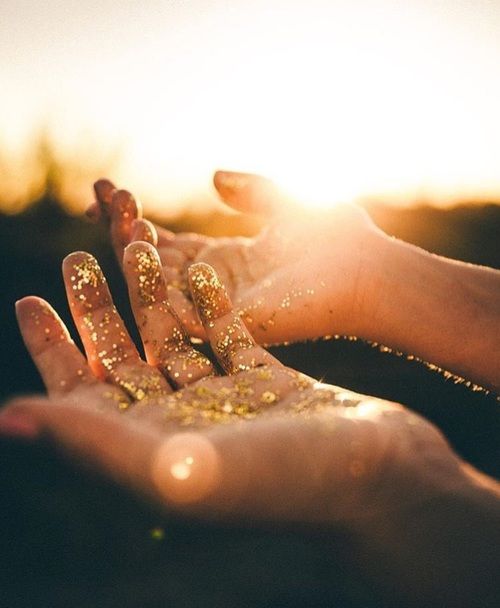
Uncovering My Scars
When I was 15 years old, I was diagnosed with osteosarcoma; a rare form of bone cancer.
I underwent months of chemotherapy and an intensive limb salvage surgery that left me with a total knee replacement and metal rods the entire length of my right leg. Due to some complications, I underwent a second surgery, where I underwent a skin graph and muscle graph, to close up the wounds from surgery.
This, of course, caused some pretty crazy scars. Scars that I’ve struggled with for the 12 years I’ve had them.
I wish I could tell you I embraced them like I embraced my cancer diagnosis, with laughter and optimism, but I did not. I hid them for years. I hid them for five years to be exact. I was the crazy looking person on a 95-degree day wearing long pants. If I did get brave enough to wear shorts, I covered my leg in bulky braces that served no purpose other than to cover me up. I had seen the stares I got the few times I ventured out with just shorts on, and I hated every minute of it. I watched people crane their necks to get a better look and I focused intently at people in large crowds, scanning for eyes on my leg. I could always find them and I always felt them.
It took me five long years to realize that people are going to stare and that I shouldn’t let it affect me any longer. Having 13thirty as such a significant part of my life helped me overcome these struggles tremendously. The more people I met at 13thirty, the better I felt. I watched in awe as they were rocking their bald heads and scars (seemingly) without a care in the world. Slowly but surely, I was building my own self-confidence. I stared at them, not to be rude, but because
I was overwhelmed with how they carried themselves and how powerful they must feel to embrace all parts of their cancer journeys, even if it meant they looked a little different at times.
The more I was around these types of people, the more I began to throw my insecurities out the window. If they could be proud of their scars, then there was no reason I couldn’t be too.
Fast-forward to today, and I’m a completely different person when it comes to my scars and insecurities. I don’t care if people stare anymore. In fact, I want people to start staring, to start asking questions. I’m proud of that part of my life and truly believe the experiences I’ve been through have shaped who I am today. I enjoy telling my cancer story and I hope that by doing so, I can help others through their struggles, whether it be physical, mental or emotional.
If I had any advice to give someone struggling with the after-effects of cancer, it would be to not wait as long as I did. Rock your bald heads. Rock those crazy scars. You’ve been through more than most people can ever imagine, and you should never feel bad about that.
About the Author
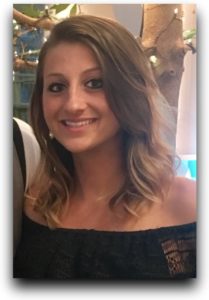 Brittany McNair is one of our 13thirty participants! She is an 11 year cancer survivor, married with a puppy, and a baby on the way!
Brittany McNair is one of our 13thirty participants! She is an 11 year cancer survivor, married with a puppy, and a baby on the way!
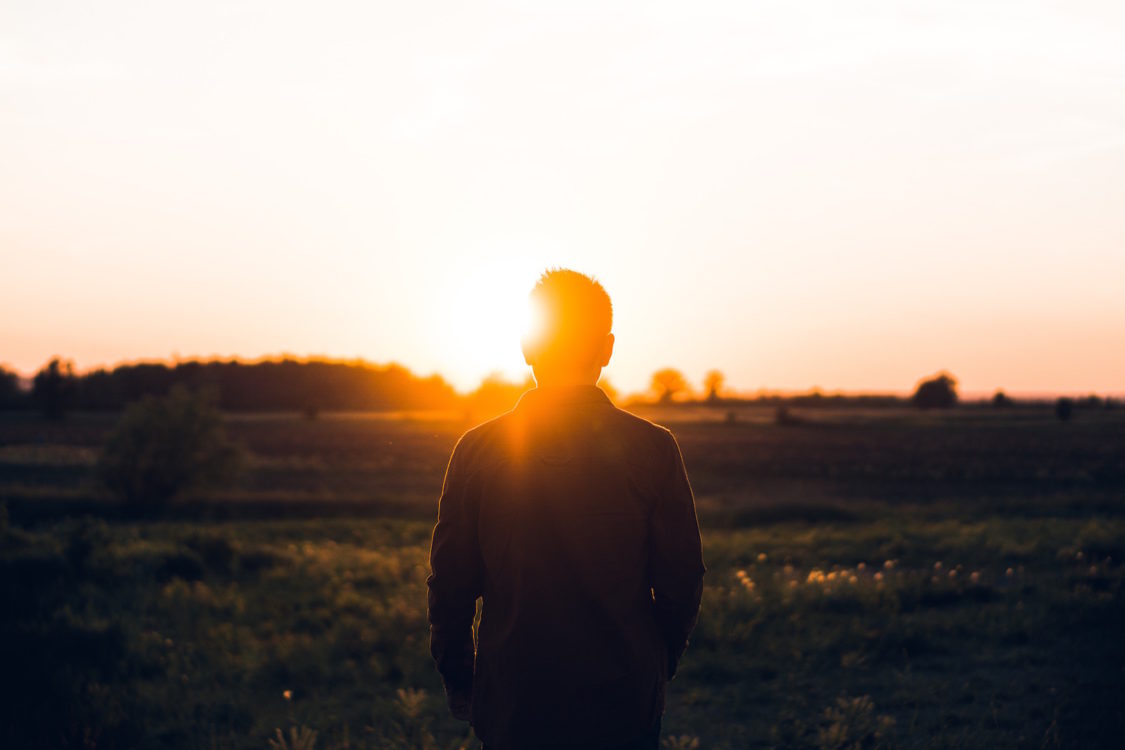
Your Story Matters
“Owning your story is the bravest thing you will ever do.” – Brene Brown
It doesn’t always seem like a good thing.
A diagnosis changes your life and turns everything upside down. Suddenly, people are looking to see how you’ll pull through it, cheering you on and telling you what an inspiration you are.
You don’t always feel like an inspiration.
Some days, you just want to crawl under the covers and disappear from the world.
Social media in our day and age has made it harder and harder to do that. With smartphones and a constant lifeline to the outside world, we’re in the spotlight even more than we’d sometimes like to be. Everyone wants an update — or we feel the pressure to keep everyone informed about our lives 24/7.
But there is a positive aspect to sharing your story. And more than just sharing, but really owning your journey and being okay with it.
It takes time. Some of us are ready to share details and process as the story unfolds. Others need to walk through it first, and process later. We are all different, every journey is different, and your story will impact someone else in a powerful way if you are willing to share it.
Because somewhere out there, someone just like you is struggling with the exact same thing, hoping for a sense of connection.
It may be easier to push away the feelings and just “get on with life”, but when you shift your perspective to the mindset that your journey is for a greater purpose, you are taking a big, brave step. Owning your story will empower others to do the same. It’s a ripple effect that you may never fully see in this lifetime, but it’s true nonetheless: your pain will have a purpose.
Choosing to see the greater good isn’t easy. Choosing to own your story isn’t easy. Choosing to share your journey for the benefit of others who are struggling isn’t easy.
But it will be worth it. You will grieve, you will release, and you will heal.
And it’s scientific, too! According to Lissa Rankin, M.D., “Telling your story—while being witnessed with loving attention by others who care—may be the most powerful medicine on earth. Each us is a constantly unfolding narrative, a hero in a novel no one else can write. And yet so many of us leave our stories untold, our songs unsung—and when this happens, we wind up feeling lonely, listless, out of touch with our life’s purpose, plagued with a chronic sense that something is out of alignment. We may even wind up feeling unworthy, unloved, or sick.”
Healing is only possible when you can let go and trust. Rankin continues, “Every time you tell your story and someone else who cares bears witness to it, you turn off the body’s stress responses, flipping off toxic stress hormones like cortisol and epinephrine and flipping on relaxation responses that release healing hormones like oxytocin, dopamine, nitric oxide, and endorphins. Not only does this turn on the body’s innate self-repair mechanisms and function as preventative medicine—or treatment if you’re sick. It also relaxes your nervous system and helps heal your mind of depression, anxiety, fear, anger, and feelings of disconnection.” (Psychology Today)
So don’t be afraid of your story.
It may hurt, it may feel uncomfortable to share at first. But the more you allow yourself to embrace your journey and truly believe in the greater purpose you play in the lives of others through your willingness to just be YOU, amazing things will start to happen — not just in your own life, but unlocking courage and inspiration in the lives of others who need to hear exactly what only you can say.
About the Author
 Sabrina Gauer is our Communications Coordinator and Wellness Coach here at 13thirty Cancer Connect! Follow her Instagram for more tips and encouragement for whole health and wellness living!
Sabrina Gauer is our Communications Coordinator and Wellness Coach here at 13thirty Cancer Connect! Follow her Instagram for more tips and encouragement for whole health and wellness living!
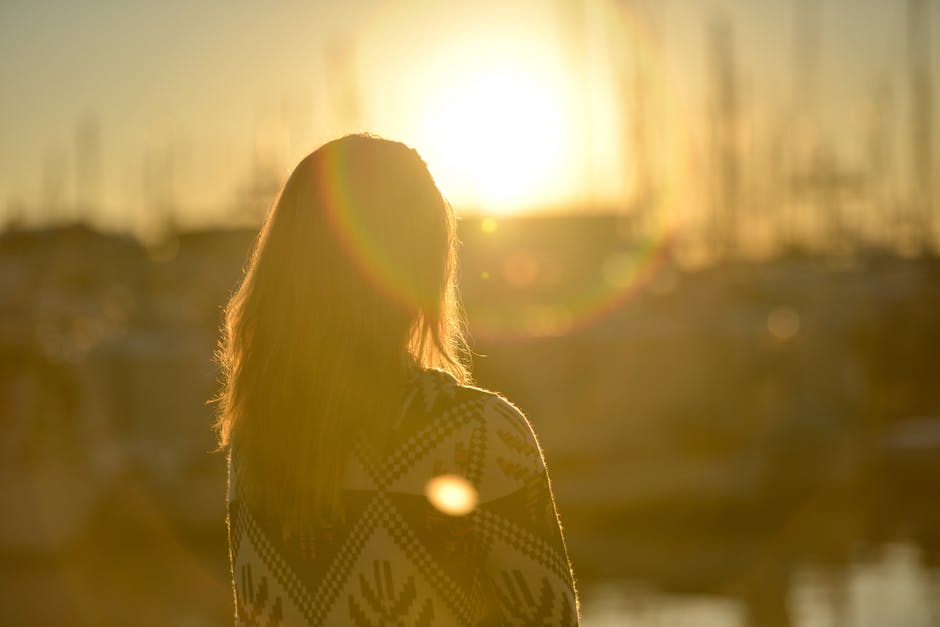
Cancer Taught Me How To Deal With Heartbreak
It’s a phrase you’ve probably heard once or twice…“Thank God _____ happened!”
Personally, this has haunted me for years; thirteen to be exact. Thirteen years ago, I went out for ice cream and came back with cancer. Sounds crazy, right? Well I may have left out a few details…
To make a long story short, I was in a car accident. It was a summer night, and I was on my way home from getting ice cream. While being examined after the accident, a large mass was discovered in my chest. Two weeks later, after many tests, I found out I had cancer.
From then on when I tell my story, the only response I ever hear is, “Thank God you were in that accident!”
It’s a nice thought, really. I get how people are trying to find the positive in a devastating situation. But honestly, at 19 years old…it was the last thing I wanted to hear. And thirteen years later, I’m still getting the “Thank God ____ happened!” response, and I think my eye twitches a little bit every time I hear it.
Now don’t get me wrong, I am thankful I was in that accident because who knows if we would have found the cancer before it was too late! But still…something about the “what ifs” starts to get the better of me. And in the past year for me, life went from being the most exciting time to probably the one thing more devastating than cancer: heartbreak.
I would imagine as a parent, watching your child go to battle with cancer is heartbreaking. My poor mom; not only did she have a sick kid, she had a sick “young adult” who wasn’t very pleasant to begin with. She was definitely heartbroken, but she’s tough as nails and never let me see it.
So, when heartbreak happened to me earlier this year, it was the first time in my life that I knew what pain really was. Cancer wasn’t painful, it was inconvenient. But this current situation was true, raw pain.
I found myself reflecting back on the “cake walk” that cancer was. I found myself back in the same “Thank God ____ happened!” mindset before I made the potentially biggest mistake of my life. This time, when it was something I really cared about, I finally understood.
We learn our life lessons in many ways. People say that “everything happens for a reason” or that it “builds character”. Throughout my life experiences, I definitely learned some things; some were easy, some were hard. In the end, it’s doesn’t matter what life throws at you: cancer, heartbreak, loss… what matters is what you do with those experiences. They are what make you who you are.
As much as I hate to admit “everything happens for a reason”, it does. There is a master plan that we don’t necessarily create, but we navigate between the good and the bad. We use life’s teachable moments to feed who we are and how we live our lives. Many of my survivor friends have expressed feelings of “little things don’t matter anymore” or how big things become little things when real big things happen.
As much as I’d like to forget or pretend like I never had cancer, I did. And it was a big deal, until the next big deal came along. I think about what that experience taught me, and how it made me the person I am today. I’m strong, smart, determined, compassionate, and optimistic. I’m able to find the positive in all things because I’ve seen that it’s not a “big deal”. Learning to have a thick skin through cancer helped me understand that heartbreak really isn’t so bad.
It could be worse and in the end: I’m a Survivor.
So the next time someone says, “Thank God ____ happened!”, I’ll suppress my twitchy eye and say, “Yes, I’m thankful every day.”
About the Author
 Karen L. Rector is one of our 13thirty participants! She graduated from St. John Fisher College in 2007 with a B.S. in Management – Marketing. She currently works at Windstream Communications in the HR – Training & Development Department as an Instructional Designer. She enjoys spending time with family and friends, going to local festivals and hosting parties.
Karen L. Rector is one of our 13thirty participants! She graduated from St. John Fisher College in 2007 with a B.S. in Management – Marketing. She currently works at Windstream Communications in the HR – Training & Development Department as an Instructional Designer. She enjoys spending time with family and friends, going to local festivals and hosting parties.
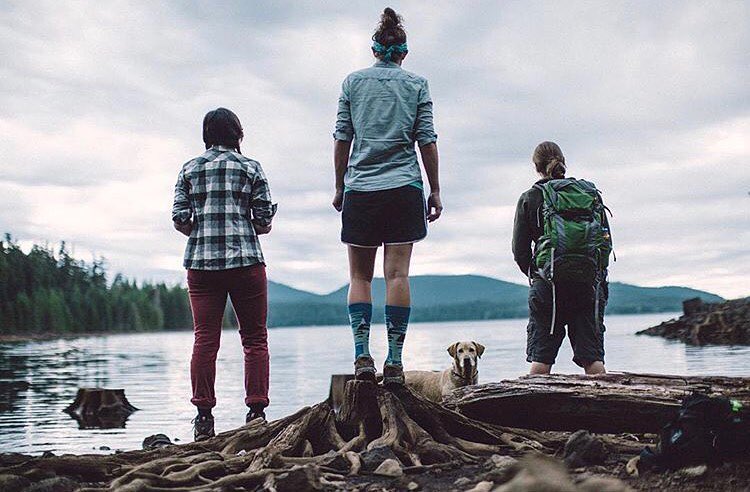
When You’re Feeling Alone
“You are enough exactly as you are. The world needs your gift and the world needs your story.” – Crystal Paine
If you’re anything like me, these thoughts have swirled through your mind and played with your emotions more than once as you’ve navigated through the ups and downs of diagnosis, treatment, and recovery. Or maybe you’re a parent walking through this with your child (no matter what age they may be), or a sibling watching your sister or brother on this hard journey, and you know that pressing weight of loneliness and being misunderstood.
It seems while everyone else gets to go on with their lives, you’re stuck in this weird twilight zone of dealing with disease.
Can you relate?
For me, being 27 years old and newly diagnosed with cancer, I felt disconnected from my friends. Even two years later, I still find it hard to relate to others who haven’t gone through the hard times that have made them stronger. But I found myself needing and learning to surround myself with understanding community.
I found that here at 13thirty Cancer Connect, and through other amazing organizations who have set out to create that community for AYA cancer patients and survivors.
To have friends here in Rochester, NY, and all over the country now who have been through it, and who get it, is more of a gift than I ever could have realized without walking through my own struggle. And just as their support and understanding has uplifted me, I have been able to share my story to encourage others as well.
Here’s the truth: You are NOT alone, and your story MATTERS.
We’ve talked about why support groups are important, but the fact remains that many AYA cancer patients and survivors are prone to depression, loneliness, and isolation due to their diagnoses, treatments, and the lingering after-effects of cancer; whether physically, emotionally, or spiritually. And support and wellness groups that offer hope, encouragement, friendship, and high quality programs that foster creativity, positivity, and safe space to share organically about experiences through diagnosis and the cancer journey can greatly combat those statistics!
At 13thirty Cancer Connect, you can embrace community, wellness, and support through all the highs and lows. You are NOT alone. We all get it here. And we are all in this together — living our BEST lives, TODAY! Visit our Rochester page or stop in to the Center to meet the staff and get connected!
About the Author
 Sabrina Gauer is our Communications Coordinator and Wellness Coach here at 13thirty Cancer Connect! Follow her Instagram for more tips and encouragement for whole health and wellness living!
Sabrina Gauer is our Communications Coordinator and Wellness Coach here at 13thirty Cancer Connect! Follow her Instagram for more tips and encouragement for whole health and wellness living!
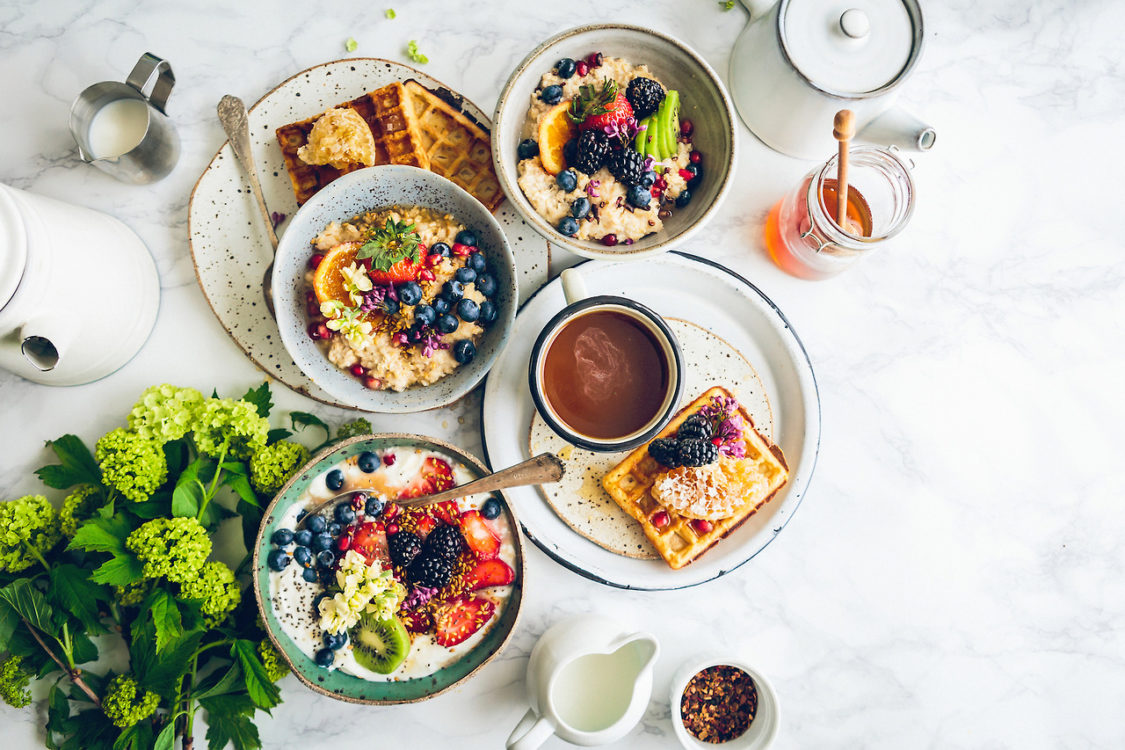
Easy Ways to Live Healthy
Whole health and wellness seems to be trendy these days. But what exactly does it all mean? And how can you — cancer patient or “healthy” person — incorporate whole health into your lifestyle?
The idea of “holistic” wellness simply means to treat the entire body as a “whole” system, rather than disconnected, separate parts. It’s about really being in tune mind, body, and spirit to address underlying problems (as simple as an upset stomach to more complex chronic issues) at their root, rather than treating the symptom by itself.
We all tend to live in the mindset that we’re healthy until we get sick. But what if we looked at health as the goal to reach for instead of simply “not sick”? What benefits are there to living a “whole health” lifestyle?
- Creates balance
- Boosts your mood
- Better awareness of physical abnormalities
- Improves sleep and healing
- Boosts your immune system
- Promotes clarity and better brain function
And that is merely scratching the surface!
But what does this look like in a daily routine? It could be waking up a little earlier and going to bed a little earlier. Choosing a raw, vegan dessert over those premixed and processed brownies. Adding more leafy greens into your diet, and embracing “meatless Monday”. Parking further away from your destination to get some cardio in. Learning a couple of easy, simple yoga poses to stimulate circulation and give your lymphatic system some love. Go for your monthly massage. Take a walk after dinner.
“Starting with small, painless changes helps establish the mentality that healthy change is not necessarily painful change. It’s easy to build from here by adding more healthy substitutions. It’s about doing what you can, to the best of your ability, and treating your body like the gift that it truly is.”
-Rick Olderman, MS, PT
Find those things that make you feel well. Don’t be bogged down or overwhelmed by all of the “healthy” advice and available research — you know what’s right for YOUR body. You know how certain foods energize you or slow you down. You know how you feel after staying up too late or missing a meal — you already have that intuition when you’re getting sick. So tap into that same intuition!
Whole, healthy living doesn’t need to be complicated. It’s simply about learning to trust yourself when it comes to your body, mind, and spirit, and taking care of the precious life you’ve been given — for however long that might be. Living your BEST life TODAY is about learning to embrace gratitude, giving yourself permission to create space and breathing room, learning by trial and error, recognizing stress and releasing those things beyond your control.
Your mindset is powerful; cultivate positivity, and you’ll be amazed at the everyday difference! Whole health is more than just the what you eat — it’s how you approach all aspects of your life.
13thirty Cancer Connect is a place where teens and young adults impacted by cancer are living their best lives — TODAY! We get it here. We’ve been through it or are still walking through it. And we are supporting each other in health and wellness through our Fit! programs and events! Visit our Rochester page or stop in to the Center to meet the staff and get connected!
About the Author
 Sabrina Gauer is our Communications Coordinator and Wellness Coach here at 13thirty Cancer Connect! Follow her blog and Instagram for more tips and encouragement for whole health and wellness living!
Sabrina Gauer is our Communications Coordinator and Wellness Coach here at 13thirty Cancer Connect! Follow her blog and Instagram for more tips and encouragement for whole health and wellness living!
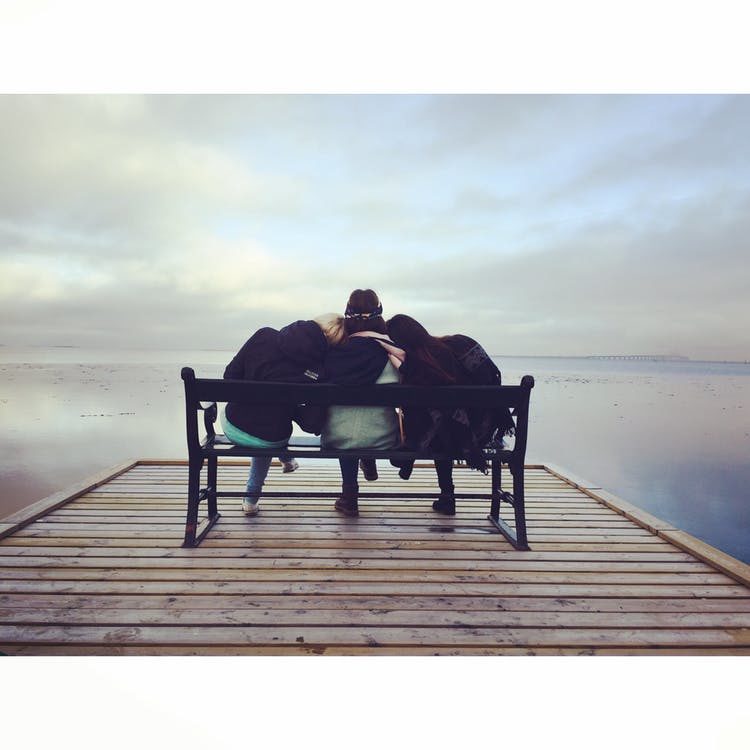
Dear Well-Meaning Friend
When tragedy strikes, people get weird.
“Everything happens for a reason.”
“You’re strong! You’ve got this! You’re the bravest person I know!”
“Maybe it’s going to teach you a lesson?”
“I’m going to check in on you all the time, and I won’t take no for an answer!”
“I’ve been doing research for you and you really should be doing (insert latest conventional or holistic treatment here) because I heard that it actually works…”
We all have those friends who mean well, who care so deeply, and just want to help. But honestly?
Sometimes the best thing to say is nothing at all.
What most of us really need from our friends and family is support. The shoulder to cry on if needed, the hand to hold when the needles are sharp and we are on our last nerve with the nurse who can’t figure out where our veins are, the hilarious memes shared via texts at just the right moment when we need a good laugh — even if it hurts to laugh.
But not everyone understands that.
It’s hard to watch a friend or family member go through hard times. We all have this thing inside of us that feels helpless when we aren’t doing something for our loved one. But we also need to remember that not everyone wants to be smothered with attention or well-meaning advice. We need to remember that boundaries are important, especially when someone is navigating through the confusion of illness and healing.
And as a patient, we might not handle every situation with grace. We might be in a really bad mood and we might lose it over the smallest thing. It’s not an excuse, but it’s still a reality. Medications, exhaustion, stressful schedules, working through “normal” life and the cancer world…it all adds up sometimes and we either snap or shut down for a while.
So, my friend, please understand: you are needed.
But sometimes you need to be gentle with us. Life is totally different now, and our relationship with you will change along with it. That’s not a bad thing; it’s just different.
And if you are that friend who has embraced this new normal and walked through the highs and lows with us, never expecting anything from us, and just being there every step of the journey with respect, understanding and love…well, you are a very special and appreciated individual who’s friendship is worth far more than words could ever express. Thank you for everything.
13thirty Cancer Connect is a place where teens and young adults impacted by cancer are living their best lives — TODAY! We get it here. We’ve been through it or are still walking through it. And we are supporting each other in an environment of acceptance, respect, kindness and love. Visit our Rochester page for programs and events, or stop in to the Center to meet the staff and get connected!
About the Author
 Sabrina Gauer is our Communications Coordinator and Wellness Coach here at 13thirty Cancer Connect! Follow her blog and Instagram for more tips and encouragement for whole health and wellness living!
Sabrina Gauer is our Communications Coordinator and Wellness Coach here at 13thirty Cancer Connect! Follow her blog and Instagram for more tips and encouragement for whole health and wellness living!

Finding Your Peace – How Rest Can Change Your Perspective
“Being diagnosed with cancer really opened my eyes to the fact that anyone can have it and that even though we think we have control over everything in our lives, we don’t. What I was forced to learn…was to put myself first. To really honor myself by saying no to the things I don’t want to do…I don’t believe you have to be diagnosed to come to these lessons, but sometimes the catastrophic moments in life force you to focus on the immediate.” Sheryl Crow, from her foreword of Crazy Sexy Cancer by Kris Carr.
“Now inhale and exhale. Really focus on your breathing, dropping your shoulders, closing your eyes, and bringing yourself to center.”
I was seated with legs crossed and hands on my knees, yoga mat beneath me. The instructor was patiently and intentionally guiding us through the meditative portion of the class, and I felt my stress lift from my shoulders as I focused on my breath. It reminded me that I hadn’t really thought about breathing that day. It’s a necessity of life, but we too often take it for granted.
Inhale.
Exhale.
Seems so simple, but how often do you forget to just take a deep, cleansing breath throughout the day? How often do you forget to stop living in crisis-mode every time a situation arises? Have you taken time to find your peace today?
How often do you put yourself first?
Rest and meditation tend to come with negative labels in our busywork society and culture. There’s never enough time in the day to accomplish everything. By the time we’ve raced through our day, whether that looks like doctor’s appointments, school, taking care of children, making dinner, cleaning, dealing with deadlines at work, etc…we crash into bed at night, usually after a few episodes on Netflix, utterly spent.
But what if we decided to look at resting as a good thing? Sometimes that means actual sleep, and making sure we are getting adequate sleep to heal our bodies (READ: Put the phone on airplane mode and get away from screens before bed!), but other times, that just means being able to say no to the things you don’t want to do.
Honor yourself, and don’t be afraid to speak up.
As cancer patients, survivors, and thrivers, we are too often allowing other people to make decisions for us (spouses, parents, well-meaning friends, doctors, bosses, and so on).
But what if you just said “No” when you needed to? Firmly, politely, and without explanation or justification?
Taking time for yourself and finding your peace can look like spending an afternoon with a good book and your cellphone off. Maybe it’s a gentle flow yoga class with a friend. Maybe it’s journaling and exploring your emotions on paper.
According to an article published in Psychology Today, meditation, rest, and reflection have scientifically-proven health benefits: “It gives you perspective: By observing your mind, you realize you don’t have to be slave to it. You realize it throws tantrums, gets grumpy, jealous, happy and sad but that it doesn’t have to run you. Meditation is quite simply mental hygiene: clear out the junk, tune your talents, and get in touch with yourself.”
Whatever helps you to center yourself, breathe, and reflect is the way you heal from the inside out. Letting go of those activities that are life-draining instead of life-giving. And getting alone with your thoughts, closing your eyes, and giving meditation a shot can change your perspective on all aspects of life. You don’t have to give in to the rushed, busywork mentality.
You can choose to be centered.
Find your peace.
13thirty Cancer Connect offers monthly yoga, Fit! classes, and massage for parents! Please contact stephen@13thirty.org for more program information and how to register.
About the Author
 Sabrina Gauer is our Communications Coordinator and Wellness Coach here at 13thirty Cancer Connect! Follow her Instagram for more tips and encouragement for whole health and wellness living!
Sabrina Gauer is our Communications Coordinator and Wellness Coach here at 13thirty Cancer Connect! Follow her Instagram for more tips and encouragement for whole health and wellness living!

